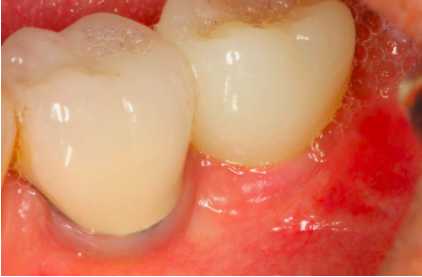Zirconia Implants (Ceramic Implants)
“While titanium has been the most commonly used material for dental implants due to its low allergy risk, recent scientific research has revealed potential concerns. These studies suggest that titanium may corrode over time, leading to the spread of fragments into surrounding tissues and even distant body areas. This corrosion can trigger inflammatory responses, particularly in individuals with a genetic predisposition to such reactions.”

The arrows in the picture point to titanium particles detected in the tissue around the implant. These particles are recognised as “foreign” by the body and are engulfed by macrophages, which can trigger inflammatory reactions.
(source article: https://europepmc.org/article/med/29440784)

Why Zirconia Implants ?


On the left of the photo you can see the teeth made using titanium and zirconia implants (ceramic implant) on the right. It is possible to observe the difference in the structure and color of the gum.
”Zirconia / ceramic implants combined with the general treatment principles of biological dentists in search of biocompatible materials, created their own application protocol. Before and after implant application, a preparation and maintenance phase that will ensure the good functioning of bone metabolism, and practices that will positively guide bone and soft tissue healing during the application, without using foreign grafting materials, are taken care of. In short, zirconia implant application is much more than using an alternative material.
